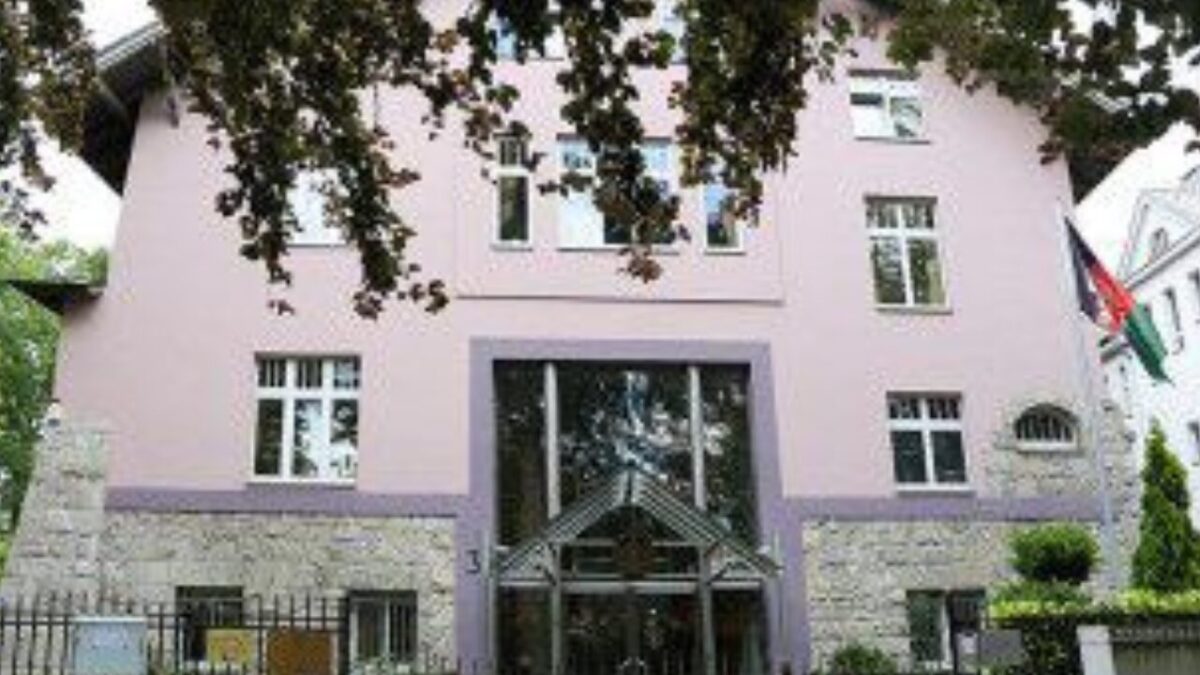Germany and Norway have encouraged Afghanistan’s embassies to engage in dialogue with the Taliban to seek technical solutions to ongoing diplomatic challenges, according to a senior Afghan diplomat.
The diplomat, who spoke with Amu TV, shared that these efforts come in response to a letter sent by the Taliban’s Ministry of Foreign Affairs to European countries.
Despite the Taliban’s recent attempts to assert control over Afghanistan’s diplomatic missions in Europe, sources familiar with the situation confirm that embassies in Germany and Norway will neither be handed over to the Taliban nor closed.
The diplomat emphasized that transferring these embassies to Taliban control is not under consideration.
Other European nations have reportedly advised Afghan embassies, which are still managed by diplomats from the previous republic, to ignore the Taliban’s communications, reiterating that the group lacks legitimate authority.
The Taliban, frustrated by their ongoing lack of international recognition, appear to have intensified efforts to take over Afghan embassies in Europe. Diplomatic sources previously informed Amu TV that the Taliban’s Ministry of Foreign Affairs had warned several countries, including Canada, Australia, and some European nations, that consular services provided by embassies managed by diplomats from the former Afghan government would not be considered legitimate if they refused to cooperate with the Taliban.
Another senior Afghan diplomat in Europe confirmed that Germany had requested the Afghan embassy in Berlin to engage with the Taliban. Sources suggest that Germany’s encouragement might be linked to efforts to facilitate the deportation of Afghan migrants who face forced repatriation. These sources indicated that Germany could potentially return Afghan migrants meeting deportation criteria through an agreement with Uzbekistan, using it as a transit country.
Earlier this year, the Taliban issued a statement asserting that only the consular services of five Afghan embassies and consulates in Europe, recognized by the Taliban’s Ministry of Foreign Affairs, would be considered valid. These include the Afghan consulate in Munich and the embassies in the Netherlands, Spain, Bulgaria, and the Czech Republic.
Human rights activists have expressed alarm over these developments, urging the international community to prioritize human rights in their dealings with Afghanistan.
“For three years, our country has effectively been handed over to terrorists. Pakistan is now in control, and it is alarming that some countries may be encouraging the embassies of the previous government to engage with the Taliban,” said Masouda Kohistani, a human rights activist. “This is deeply concerning for us because extremist and inhumane laws are being imposed in our country every day. We urge these nations to stand with us against these terrorists.”
Afghanistan’s embassies in Germany and Norway did not respond to requests for comment from Amu TV.
Three years after the Taliban seized power, no country has formally recognized the group as Afghanistan’s legitimate government. Several Afghan embassies, including Afghanistan’s seat at the United Nations, continue to be managed by diplomats from the previous administration.





